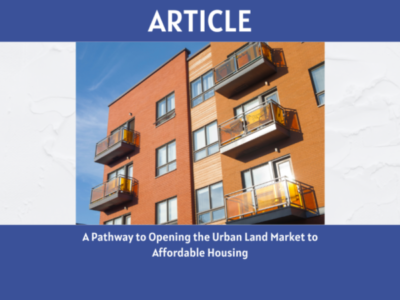SHINING A SPOTLIGHT ON PROPERTY TAX REFORM
The Portland teachers’ strike and the Governor’s Housing Council reveal problems with Oregon’s broken property tax system
December 2023
The December Portland teachers’ strike revealed the nagging reality of education funding: pathetic state support. In a related development, the Governor’s Housing Production Advisory Council (HPAC) formed last summer recommended actions that address revenue shortfalls and help meet production goals for affordable housing. The HPAC dug to the problem’s root: Oregon’s broken property tax that has plagued us since adoption of Measures 5 and 50 in the Nineties.
Voters unwittingly enshrined the Constitution with ill-conceived measures to control revenue growth. The main culprit is a Measure 50 limit on property assessment increases to three percent annually, far below the real market value (RMV) of most properties. By severing the connection between true values and property taxes, assessment limits impose differing tax liabilities on owners of identical properties: the biggest tax breaks go to homeowners whose values grow fastest.
Tax experts throughout the country have concluded that of all methods to provide tax relief, assessment caps are the most flawed, expensive to administer, and poorly targeted. Combined with Measure 5, this “Frankentax” system has shifted the burden of financing education from counties to state government.
We are pleased that HPAC’s Tax Reform Working Group recognizes the failure of Measures 5 and 50 to bring equity and fairness to Oregon’s property tax and in response recommends the adoption of a land value tax system. They have diagnosed the problem accurately: all the perverse incentives built into the current system.
The most pervasive impediment to housing production is the extremely low tax on vacant and underutilized sites. This encourages owners to hold onto their parcels while land values continue to rise, then capture the windfall gain (unearned equity) when it’s time to sell. Owners have no financial incentive to build new housing or upgrade existing units because an assessment increase will result in higher tax liability.
The land value tax (LVT) takes the form of a split-rate. With the use of RMVs, building values are taxed at a lower rate and land values at a proportionately higher rate. With higher land taxes, it can become too costly to hold onto vacant or underutilized sites. A trend would emerge toward greater housing production. The differential-rate tax is applied uniformly to all properties within a jurisdiction, so the general effect is a restraint on rising land prices, leading toward greater housing affordability.
LVT’s powerful incentives have a proven record in Pennsylvania where its local implementation consistently raises the volume of building permits. That’s no surprise: it’s like turning the city into an Enterprise Zone – tax reductions on new construction without the revenue loss. Pittsburgh enjoyed one of the most affordable housing markets and highest owner-occupancy rates in the country. Harrisburg’s LVT has kept housing as affordable as the surrounding communities with weak economies.
Recognizing this is a heavy lift for lawmakers, advancing an LVT study bill, which in fact passed the Senate resoundingly in the 2019 session (SB 702), is a critical step. It will inform legislators how this reform measure can work in major cities and rural towns.
Ironically, perhaps, is the effort made by William S. U’ren, the father of Oregon’s citizen initiative about 100 years ago, to adopt the “simple/single” tax on land. While his “citizen legislature” concept wasn’t used for the tax, it became a national model.
If we fail to transform our system of public financing into an economic engine, we’re passing up an opportunity for a thriving economy and a more just society.
Kris Nelson, chair & legislative director
Tom Gihring, Ph.D., research director
Common Ground OR-WA




